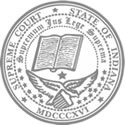On May 16, 2019, Indiana’s Supreme Court issued an Order making Indiana’s Commercial Courts permanent, effective June 1, 2019. A copy of the Order can be found here.

The Commercial Courts were established as a three-year pilot program within Indiana’s Superior Court, beginning on June 1, 2016. From that time to the present, the Indiana Commercial Court Working Group has followed the pilot program closely. The Working Group produced a lengthy report in November 2018, recommending that the Commercial Courts be made permanent. A copy of that report can be found here. The Working Group has also produced an Indiana Commercial Courts Handbook, which can be found here.
The Pilot Program Judges (Bobay, Bowers, D’Amour, Granger, Sedia, and Welch) had issued their own interim report in December 2017, providing considerable detail on the Commercial Courts’ progress. A copy of that report can be found here.
In its Order last week, Indiana’s Supreme Court found that the Commercial Courts had advanced the following benchmarks and goals:
- Establish judicial practices that will help all court users by improving court efficiency;
- Allow commercial disputes to be resolved efficiently with expertise and technology;
- Enhance the accuracy, consistency, and predictability of judicial decisions in commercial cases;
- Enhance economic development in Indiana by furthering the efficient resolution of commercial law disputes; and
- Employ and encourage electronic information technologies, and early alternative ADR Interventions
Judges Bobay (Allen Superior Court), Bowers (Elkhart Superior Court), D’Amour (Vanderburgh Superior Court), Granger (Floyd Superior Court), Sedia (Lake Superior Court), and Welch (Marion Superior Court) will continue as Commercial Court Judges.
While the Working Group will not continue as such, the Commercial Court Judges have been directed to create a “Commercial Court Committee” to serve as an ongoing standing committee to provide guidance for Indiana’s Commercial Courts. Commercial Court Committee members shall include one judge representing each Commercial Court; at least one legislative representative; at least one Chamber of Commerce representative; at least one law professor with expertise in the area; and lawyers (including litigators representing large and small businesses, transactional lawyers representing large and small businesses, in-house counsel from large and small businesses, and other lawyers with commercial litigation expertise).

The Supreme Court has adopted Commercial Court Rules, which go into effect on June 1, 2019, noting there have been some amendments from the earlier adopted interim rules. “The purpose of these rules is to (1) promote the efficient resolution of commercial disputes; (2) improve court efficiency for all court users; (3) employ and encourage early alternative dispute interventions; (4) enhance the accuracy, consistency, and predictability of judicial decisions in commercial cases; and (5) enhance economic development in Indiana by furthering the efficient resolution of commercial law disputes.”
The new rules are attached as Exhibit A to the May 16, 2019 Order. In addition to the text of the Rules themselves, there is significant commentary accompanying certain Rules.
Here are some highlights from the permanent Rules:

As with prior practice, the permanent Rules continue to make clear that inclusion in the Commercial Court docket is voluntary, i.e., a party can refuse to participate and the case will not stay on the Commercial Court docket. (Rule 4)
The Rules include a detailed list of cases falling within Commercial Court purview. (Rule 2)
People appropriate to the task can be appointed as “Commercial Court Masters.” Among other powers, a Commercial Court Master “may require the production of evidence on all matters embraced in the order of reference, including the production of records and documents of all kinds, including electronic media. The Master may rule upon the admissibility of evidence unless otherwise directed by the order of reference and has the authority to place witnesses under oath. The Master may examine witnesses, including the parties to the action, under oath. The Master may permit the parties to examine witnesses under oath, and may place reasonable limits on the examination of witnesses by the parties.” (Rule 5)
The Commercial Court discovery rule includes, among other things, requirements for initial disclosures and specific address of electronically stored information practice. Discovery may be obtained, “regarding any nonprivileged matter that is relevant to any party’s claim or defense and proportional to the needs of the case, considering the importance of the issues at stake in the action, the amount in controversy, the parties’ relative access to resolving the issues, and whether the burden or expense of the proposed discovery outweighs its likely benefit. Information within this scope of discovery need not be admissible as evidence to be discoverable.” (Rule 6)
It is likely that active management and evolution of Indiana’s Commercial Courts will continue into the future, and that new studies will report on developments in the Commercial Courts.
